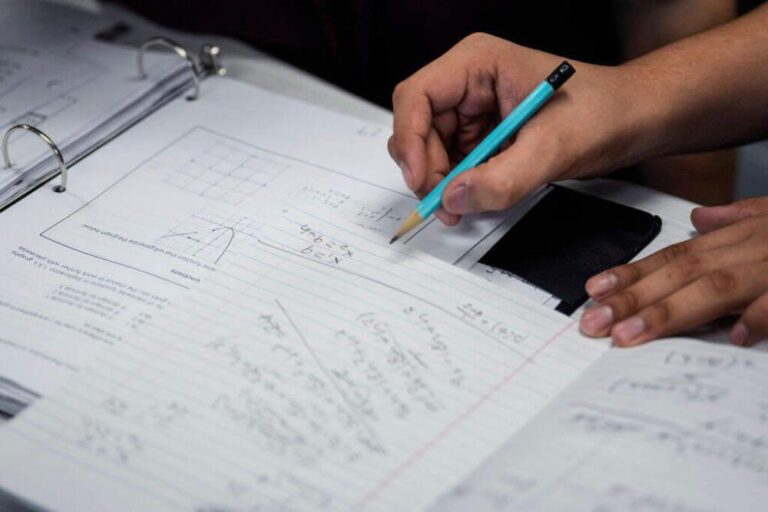Rethinking Honors Programs: Striving for Equity and Excellence in Modern Education
Balancing Fairness and Academic Challenge in Schools
Across the United States, numerous school districts are reassessing the role of traditional honors programs, with some opting to phase them out entirely. Advocates for this change argue that honors tracks often reinforce systemic inequities by disproportionately benefiting students from more privileged backgrounds, thereby creating divisions within the student body. Conversely, opponents of this trend caution that removing honors courses risks diluting academic rigor and restricting opportunities for students who thrive on advanced challenges. This ongoing discussion raises a pivotal question: how can educational institutions cultivate both high achievement and equitable access simultaneously?
Recent research sheds light on the multifaceted effects of discontinuing honors programs or integrating them into more inclusive classroom settings:
- Enhanced diversity: Schools report a notable increase in minority representation within advanced science, technology, engineering, and math (STEM) classes after blending honors students with their peers.
- Varied academic outcomes: While many students flourish in mixed-ability environments, some high-performing learners express concerns about insufficient academic stimulation.
- Need for teacher development: Educators often require specialized training to effectively address the broad spectrum of student abilities in unified classrooms.
| Metric | Prior to Honors Program Removal | Following Honors Program Removal |
|---|---|---|
| Student Composition | 60% White, 30% Minority | 45% White, 50% Minority |
| Average Grade Point Average (GPA) | 3.8 | 3.5 |
| Student Contentment | 75% | 65% |
Consequences for High-Performing Students When Honors Tracks Are Removed
Students who excel academically often find themselves at the heart of the controversy surrounding the elimination of honors classes. While the intention behind removing these programs is to foster inclusivity and reduce social stratification, critics argue that this approach may inadvertently deprive gifted learners of the rigorous, specialized instruction they require to remain engaged and reach their full potential. Without access to honors curricula, many high-achievers face a homogenized educational experience that can lead to boredom and diminished motivation.
Teachers have also noted shifts in classroom dynamics and resource distribution following the removal of honors tracks. Key challenges include:
- Fewer chances for advanced coursework that cultivates analytical thinking and leadership abilities.
- Difficulty tailoring instruction to accommodate a wide range of academic levels within a single classroom.
- Potential hurdles in college admissions, where honors classes often serve as indicators of academic ambition and capability.
| Dimension | Before Honors Program Removal | After Honors Program Removal |
|---|---|---|
| Level of Academic Challenge | Intensive, specialized topics | Uniform curriculum for all students |
| Student Engagement | High participation in advanced subjects | Noted decline in motivation |
| Instructional Focus | Customized lessons for gifted learners | Generalized teaching with less differentiation |
Perspectives from Teachers and Students on Academic Grouping
Educators hold diverse views on the practice of academic tracking. Some emphasize that honors classes provide essential challenges that stimulate motivated students and enhance critical thinking skills. Others caution that rigid tracking systems can foster social divides, stigmatize students placed in standard or remedial groups, and limit opportunities for diverse peer interactions. Many educators advocate for more adaptable grouping strategies that prioritize individual growth over fixed labels.
Students’ experiences with tracking reveal emotional complexities. While some appreciate the recognition and tailored instruction that honors classes offer, others report feelings of exclusion and pressure. The labeling associated with academic tracks can impact self-esteem and shape students’ perceptions of their own potential, sometimes prematurely limiting their aspirations. The following summary encapsulates the main concerns and suggestions from both educators and students:
- Teachers: Emphasize the importance of differentiated instruction and equity.
- Students: Highlight the need for emotional support and inclusive learning environments.
- Shared Views: Call for flexible, inclusive academic structures that adapt to student needs.
| Group | Main Concern | Proposed Solution |
|---|---|---|
| Educators | Equity and quality of instruction | Flexible grouping and growth-oriented placements |
| Students | Pressure and stigmatization | Supportive, stigma-free learning environments |
| School Leaders | Efficient resource management | Balanced programming with inclusive access |
Strategies for Developing Inclusive and Challenging Curricula
To foster an educational system that is both inclusive and academically demanding, policymakers must emphasize differentiated learning opportunities that avoid segregating students by perceived ability. Implementing Universal Design for Learning (UDL) principles enables educators to design lessons that accommodate diverse learning preferences and remove barriers that disproportionately affect marginalized groups. UDL promotes multiple ways of engagement, representation, and expression, ensuring that all students have equitable access to high-quality education.
Effective curriculum reform should also focus on systemic supports that maintain high expectations while encouraging collaboration over competition. Key approaches include:
- Adopting heterogeneous classroom groupings to enhance peer learning and social integration.
- Providing continuous professional development to equip teachers with skills to adapt rigorous content for diverse learners.
- Ensuring equitable distribution of resources, particularly to schools serving historically underserved communities.
- Incorporating culturally responsive teaching methods that validate and reflect students’ varied backgrounds.
| Policy Component | Expected Outcome |
|---|---|
| UDL Adoption | Enhanced accessibility for all students |
| Mixed-Ability Grouping | Improved peer collaboration and social skills |
| Teacher Training Programs | Better differentiation and instructional quality |
| Fair Resource Allocation | Reduction of achievement disparities |
Final Thoughts: Navigating the Future of Honors Education
The conversation about the future of honors programs remains deeply nuanced, with educators, families, and policymakers divided on how to best harmonize academic excellence with fairness and inclusivity. While honors courses have traditionally served as a platform for challenging gifted students, concerns about perpetuating segregation and limiting broader access have prompted calls for reform or elimination. This pivotal moment invites the education community to reimagine how schools can support diverse learners effectively—an ongoing process that demands thoughtful dialogue and a commitment to equity and quality for all.

